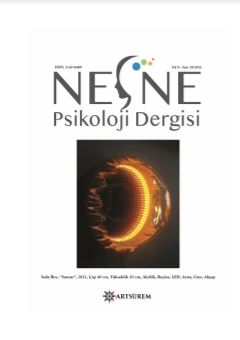Ekonomik Güçlük İndeksi’nin Psikometrik Özelliklerinin Sınanması
The Psychometric Properties of the Economic Measures Index
Author(s): Aysun Ergül-Topçu, Ayşen GüreSubject(s): Psychology, Methodology and research technology, Family and social welfare, Socio-Economic Research
Published by: Sanat ve Dil Araştırmaları Enstitüsü
Keywords: economic hardship; economic pressure; financial concerns; validity; reliability;
Summary/Abstract: This study aims to adapt the Economic Measures Index (EMI) in Turkish. EMI was developed by Conger et al. (1990) in order to measure couples/romantic partners' economic problems. It consists of independent subscales that measure economic hardship comprehensively. These subscales include economic hardship (indicators of family economic conditions and negative economic events), economic pressure (can't make ends meet, material needs and financial cutbacks) and financial concerns. Participants consisted of 278 students (152 girls and 126 boys) from 6th, 7th and 8th grades (secondary schools) and 9th, 10th and 11th grades (high schools) and their mothers and fathers. The Economic Strain Scale (ESS) developed to assess how often students experienced economic strain in their life were used to test the criterion validity of the EMI. The correlation coefficients between the EMI and ESS ranged between .25 and .31. The Cronbach's Alpha internal consistency coefficients of the subscales of the EMI ranged from 80 to .91. The split-half reliability coefficients of subscales ranged between .76 and .88. The analyses showed that the Turkish form of the EMI had sufficient validity and reliability values.
Journal: Nesne-Psikoloji Dergisi
- Issue Year: 9/2021
- Issue No: 19
- Page Range: 99-113
- Page Count: 15
- Language: Turkish

